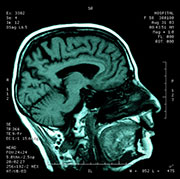- 8 Ways to Increase Dopamine Naturally
- 7 Best Breads for Maintaining Stable Blood Sugar
- Gelatin vs. Collagen: Which is Best for Skin, Nails, and Joints?
- The Long-Term Effects of Daily Turmeric Supplements on Liver Health
- Could Your Grocery Store Meat Be Causing Recurring UTIs?
- Are You Making This Expensive Thermostat Error This Winter?
- Recognizing the Signs of Hypothyroidism
- 10 Strategies to Overcome Insomnia
- Could Artificial Sweeteners Be Aging the Brain Faster?
- Techniques for Soothing Your Nervous System
Study Probes Heroin Addiction’s Effect on the Brain


MONDAY, Nov. 11Long-term heroin use changes how genes are activated in the brain, which leads to changes in brain function, according to a new study.
Researchers examined the brains of dead heroin users and focused on an area of the brain called the striatum, which plays a key role in drug abuse. They found significant changes in how DNA was being used in the brains, and the degree of change matched the number of years of heroin addiction.
They also found evidence that heroin overdose causes brain changes other than addiction, which indicates that the behaviors that lead to overdose have a different neural basis than those that lead to long-term abuse.
The observed changes to brain function are driven by a process called epigenetics. This means environmental events modify the shape and packaging of DNA without changing the underlying DNA itself.
Instead, the structure of the DNA becomes more “open” or “closed,” allowing some genes to be expressed [activated] more or less often. This changes what proteins are produced and, as a result, can change how the brain functions, the researchers said.
The study was scheduled for presentation Sunday at the annual meeting of the Society for Neuroscience in San Diego.
“Our study addresses a critical gap in our knowledge about heroin addiction because we cannot often directly study the brains of addicted humans,” senior author Yasmin Hurd, of the Icahn School of Medicine at Mount Sinai, in New York City, said in a society news release.
“Our results provide important insights into how human brains change in response to long-term heroin use, and give us the knowledge to help treat this dangerous disease,” Hurd said.
According to the World Health Organization, 9.5 million people worldwide abuse heroin, which puts them at a 20 to 30 times higher risk of death than non-drug users.
Data and conclusions presented at meetings typically are considered preliminary until published in a peer-reviewed medical journal.
More information
The U.S. National Institute on Drug Abuse has more about heroin.
Source: HealthDay
Copyright © 2026 HealthDay. All rights reserved.










